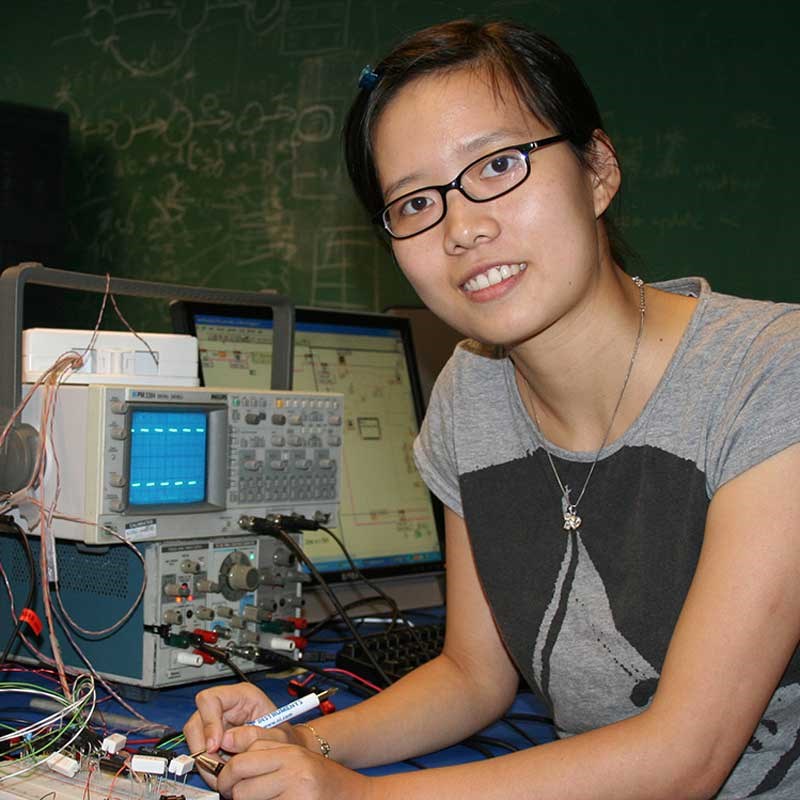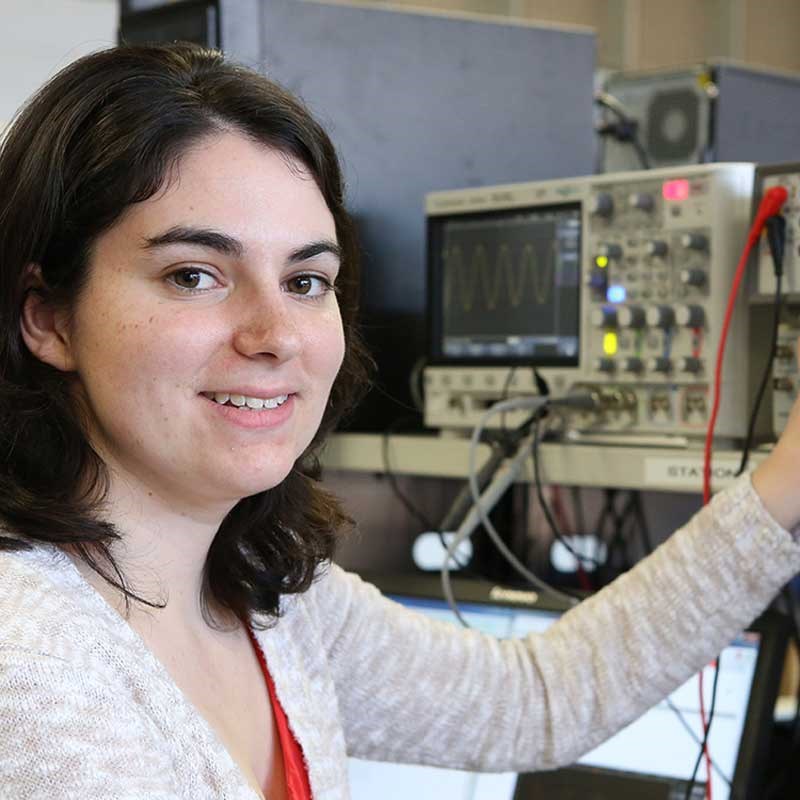What courses will you take?

The Electrical Engineering program is accredited by the Engineering Accreditation Commission of ABET under the commission’s General Criteria and Program Criteria for Electrical Engineering. In UMass Lowell's B.S. in Electrical Engineering, you will learn the fundamentals of electrical engineering beginning with basic mathematics and science, followed by their application to courses in engineering science and engineering design.
Courses in engineering science and design provide a balanced view of hardware, software, application tradeoffs, basic modeling techniques and the use of computer-aided design tools.
You will also take courses in the humanities and social sciences that help broaden your understanding of the role that non-technical knowledge plays in determining a high level of professional responsibility.
An important aspect of our curriculum is the senior-year technical elective program intended to broaden or deepen technical knowledge according to students’ interests and competencies. In addition, the project-based capstone experience challenges students to develop a custom-designed product for a client with a disability through the Assistive Technology Program.
Accredited by ABET, our hands-on program emphasizes experimental science and technology through investigative laboratory work and classroom lectures and demonstrations.
Visit the Academic Catalog for a complete course listing and to learn about the Electrical Engineering/Computer Science Double Major and Electrical Engineering/Physics Double Major.





